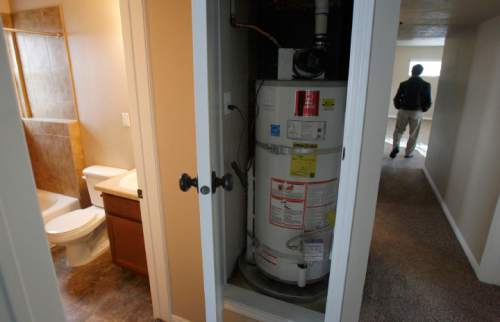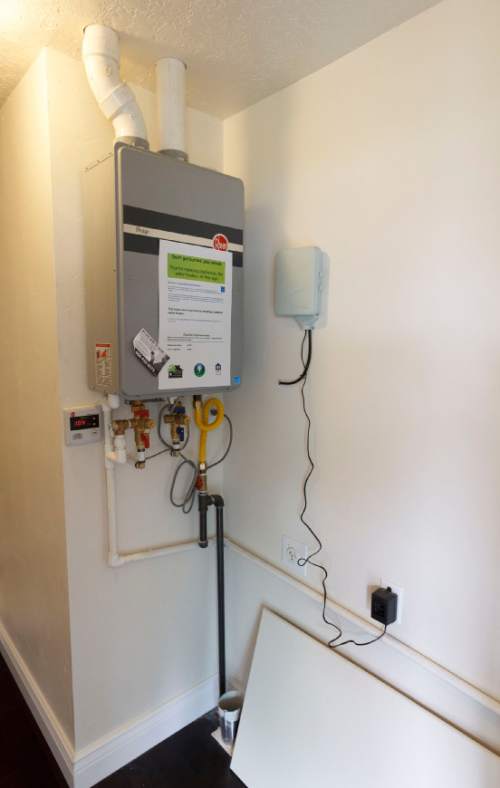This is an archived article that was published on sltrib.com in 2015, and information in the article may be outdated. It is provided only for personal research purposes and may not be reprinted.
A previously uncontested rule on household-water-heater emissions will get a little extra attention from state lawmakers in light of new questions about the jurisdiction of the state Air Quality Board.
The rule, which would've barred the sale of water heaters that do not qualify as ultra-low-nitrogen-oxide emitters after Nov. 1, 2017, was passed by the Air Quality Board in September. But two weeks ago, after the Utah Home Builders Association suggested the rule was created without proper public input, members of the Administrative Rules Review Committee voted to place it with other rules on a "sunset" list with others the Legislature may vote against upholding in the coming session.
Ross Ford, executive vice president of the Utah Home Builders Association, said the group doesn't object to the rule so much as how it was created — seemingly behind closed doors.
"We were not even aware of it," Ford said. "DEQ sent out a notice to a handful of people, and the Home Builders Association was not on the list," he said, referring to the Department of Environmental Quality (DEQ), the parent agency of the Air Quality Board.
It's not certain that the sun will set on the water-heater regulation, said Art Hunsaker, a policy analyst for the rules committee.
The Legislature must formally authorize all administrative-agency rules each year. It normally does so with a short but sweeping bill that authorizes all state rules except those named within the sunset list, Hunsaker said. But some rules are placed on the sunset list because they've been marked for further legislative review, which the committee deemed necessary in this case, he said, in light of apparently conflicting state statutes about which of the state's legal bodies has the right to regulate emissions from household appliances.
The builders group argues that the installation of water heaters should be regulated by state building code, not administrative rule. Ford said residents have better access to the legislative process than to the administrative process, and that rules having the potential to impact such a large number of Utahns should be legislative affairs.
"Our request wasn't to condemn the rule or support the rule," he said, "but just to say that it needs to go through the process."
Bryce Bird, director of the Utah Division of Air Quality, said his department hadn't anticipated a conflict when they crafted the rule because their past actions haven't conflicted with the building code. Nobody raised the issue during a public comment period on the rule, nor when the rule was considered by the Air Quality Board, he said.
The path forward is uncertain, Bird said. Because most involved parties seem to agree on the content of the rule, Bird said he would still like to find a way to make the rule a reality. But even more so, he said, he would like to see some legislative action that might resolve the uncertainty about the jurisdiction of the Air Quality Board.
Matt Pacenza, HEAL Utah executive director, agreed with Bird on the need for legislative action, but he said the debate is really a ploy by the Utah Home Builders Association to hold up the rule because of what he believes is the association's anti-regulation ideology.
"I don't think the Home Builders Association is that concerned about water heaters," he said. "It's a shame that they're willing to sacrifice a perfectly good rule in order to defend a principle."
HEAL released a letter early Monday morning encouraging Utahns to attend Wednesday's meeting of the Natural Resources, Agriculture and Environment Committee to show solidarity and support while the committee considers its course of action for the water-heaters rule. The advocacy group has also created a website where residents can submit letters in favor of the rule to the committee in advance of Wednesday's meeting.
Twitter: @EmaPen -
Public hearing to discuss water-heater regulation:
When • Wednesday, 1:15 p.m.
Where • House Building Room 30, 350 N. State, Salt Lake City





